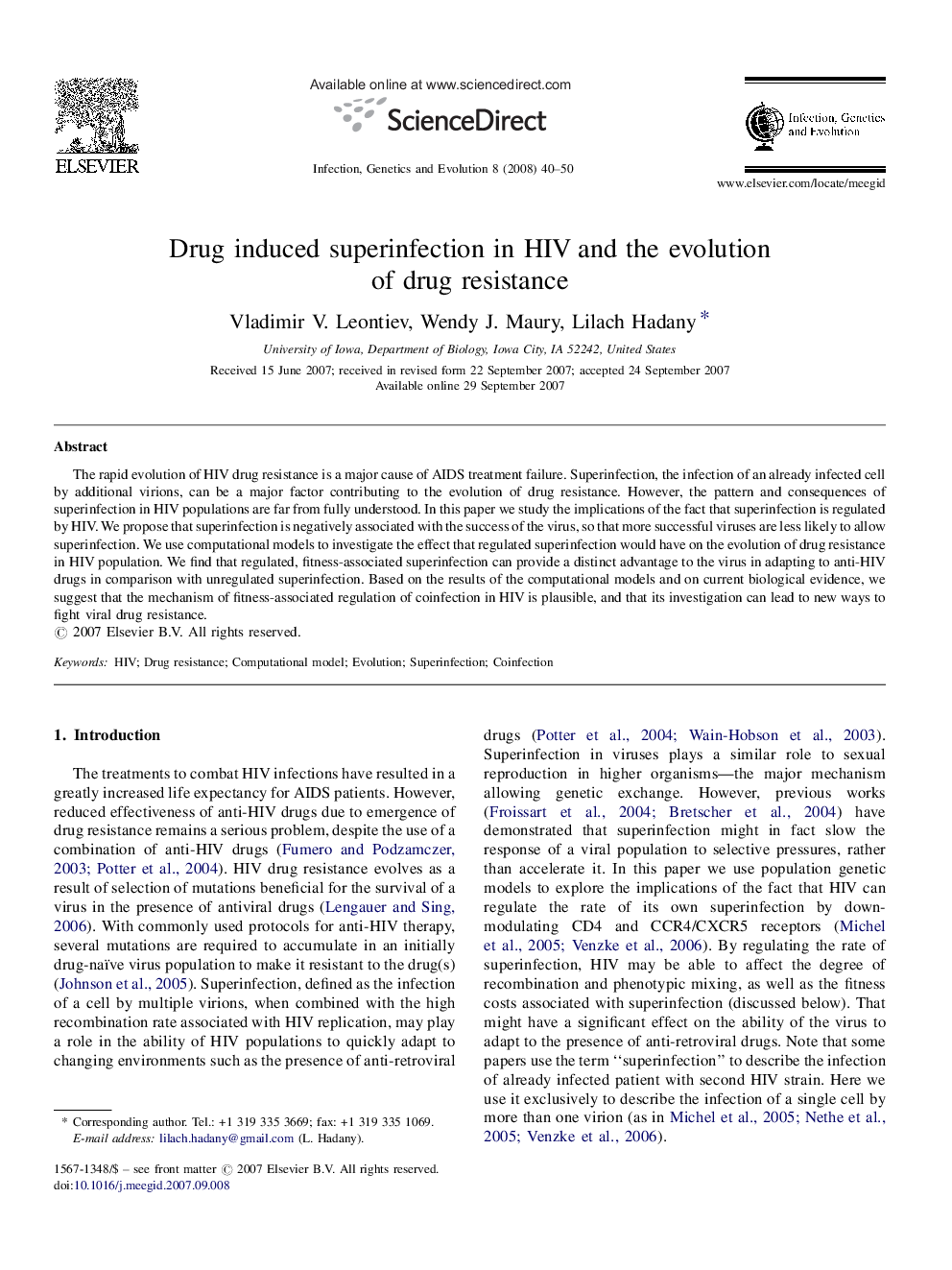| Article ID | Journal | Published Year | Pages | File Type |
|---|---|---|---|---|
| 2823479 | Infection, Genetics and Evolution | 2008 | 11 Pages |
The rapid evolution of HIV drug resistance is a major cause of AIDS treatment failure. Superinfection, the infection of an already infected cell by additional virions, can be a major factor contributing to the evolution of drug resistance. However, the pattern and consequences of superinfection in HIV populations are far from fully understood. In this paper we study the implications of the fact that superinfection is regulated by HIV. We propose that superinfection is negatively associated with the success of the virus, so that more successful viruses are less likely to allow superinfection. We use computational models to investigate the effect that regulated superinfection would have on the evolution of drug resistance in HIV population. We find that regulated, fitness-associated superinfection can provide a distinct advantage to the virus in adapting to anti-HIV drugs in comparison with unregulated superinfection. Based on the results of the computational models and on current biological evidence, we suggest that the mechanism of fitness-associated regulation of coinfection in HIV is plausible, and that its investigation can lead to new ways to fight viral drug resistance.
